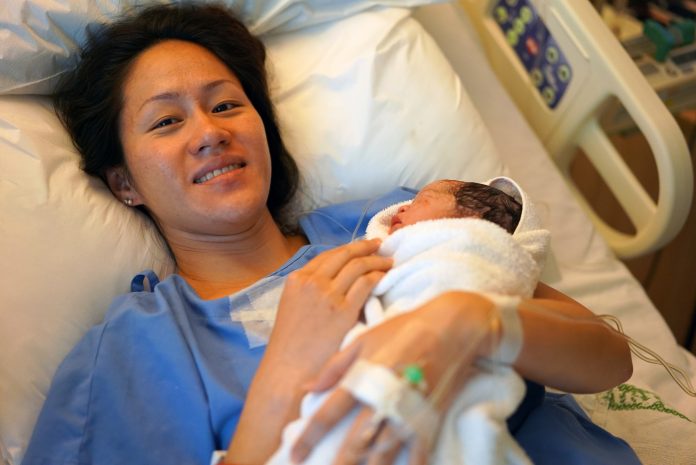Maternity safety minister Nadine Dorries has announced £2.45 million in funding for the NHS to improve the safety of women and babies during childbirth
The government’s maternity safety ambition aims to halve the rates of stillbirth, neonatal or maternal death and brain injuries that occur during or soon after birth by 2025.
Of the funding, £2 million will be used by the Royal College of Obstetricians and Gynaecologists (RCOG), in collaboration with the Royal College of Midwives (RCM) and The Healthcare Improvement Studies Institute at the University of Cambridge, to test the best ways to spot early warning signs of babies in distress and lead the first phase of the Avoiding Brain injuries in Childbirth (ABC) collaboration.
Brain injuries in Childbirth
The ABC review aims to develop a nationally agreed approach for how staff monitor the condition of a baby during labour by:
- Testing different approaches to monitoring babies during labour and surveying maternity staff to see how midwives and obstetricians currently identify when a baby is in distress during labour and how they then deliver babies even more safely
- Interviewing women and their birth partners on these varying approaches based on their personal experiences
- Agreeing on a clear process to monitor babies and record readings during labour with a flowchart guide to decide when to escalate a case to the wider multi-disciplinary maternity team
- Developing a nationally agreed approach to delivering babies via caesarean section when there are complications with the baby’s positioning
Dr Edward Morris, President at the RCOG, said:
“We’re delighted to receive funding for a new workplace planning tool and project to reduce brain injuries in childbirth. This investment will go a huge way to improving the quality of care provided to pregnant women and their babies.
“We recognise that appropriate maternity staffing is fundamental to providing safe care for women and we hope this tool will give maternity units in England a clear guide to determine how many medical staff they require in their specific setting.
“The new project to avoid newborn brain injury in childbirth aims to address the challenges around effective foetal monitoring, building on the great work already being done in this area. We understand that the impact of avoidable newborn brain injury is profound and we want to do everything we can to ensure no family has to experience it.”
Planning tool
A further £449,000 will go towards developing a new workforce planning tool for maternity medics to make sure patients get the medical support they need.
The tool will aim to:
- Provide maternity staff with a new methodology that calculates the numbers, skill sets and grades of medical staff required within individual maternity units based on local needs
- Help trusts tackle inequalities by taking into account local factors such as birth rates, age of population, the socio-economic status of the area, and geographical factors
- Calculate the number of obstetricians at all grades required locally and nationally to provide a safe, personalised maternity service within the context of the wider workforce
- Identify innovative ways of working to better utilise the current workforce
- Help gain a better understanding of the factors that promote safety and positive culture within maternity teams and how these can be rolled out nationally
Maternity safety minister Nadine Dorries said:
“I am determined to make sure as many mums as possible can go home with healthy and happy babies in their arms.
“This new programme, which we’re supporting with over £2.45 million, aims to spot warning signs earlier and save lives, preventing families and their babies from facing the horrific ordeal of a life-changing brain injury. It will help us deliver on our ambition to halve brain injuries during birth by 2025.
“Having the right maternity staff in the right place at the right time means they can learn from one another, give the best care for mums and babies and build a safe and positive environment for both staff and pregnant women in maternity teams across the country.”











